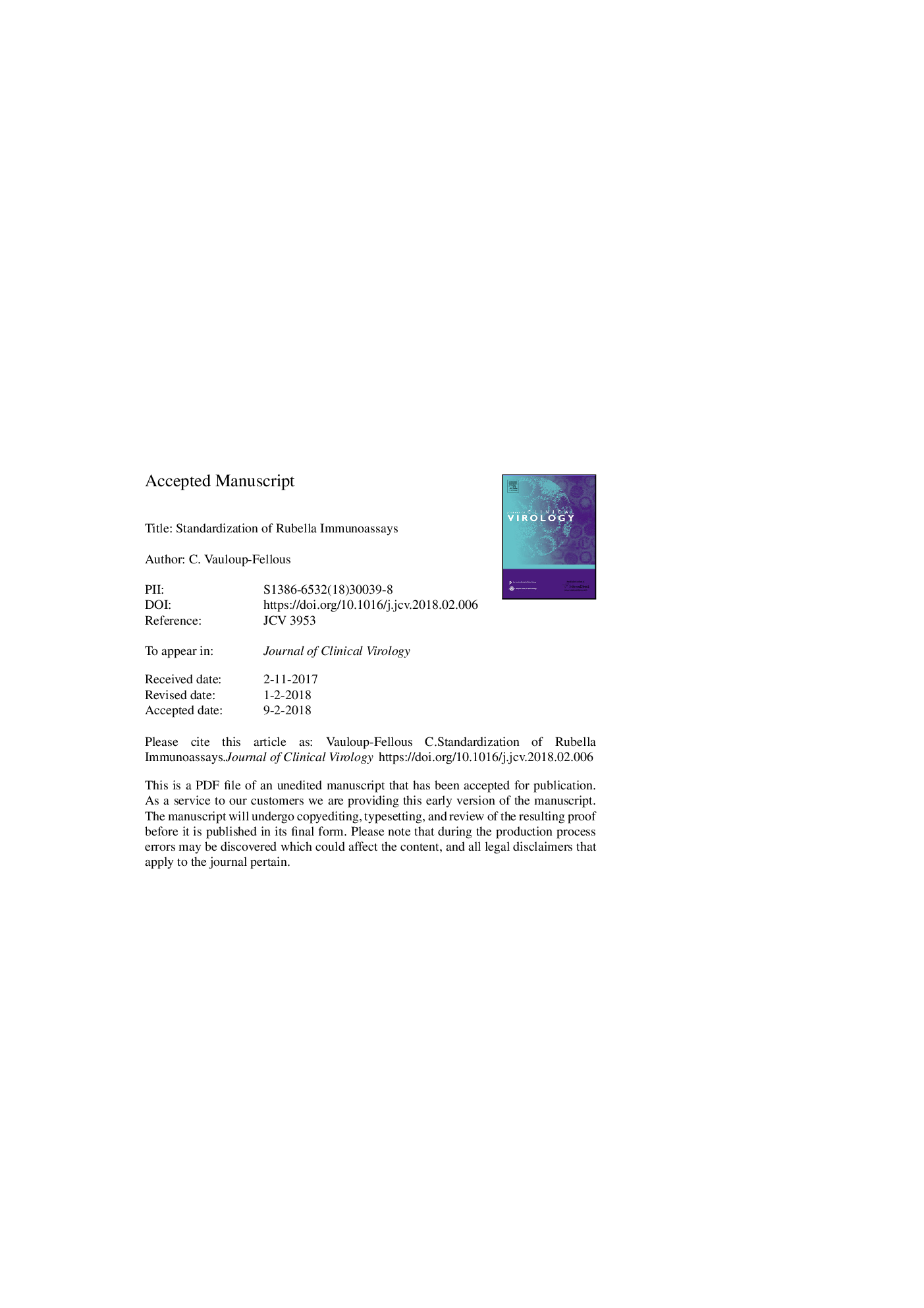| Article ID | Journal | Published Year | Pages | File Type |
|---|---|---|---|---|
| 8739783 | Journal of Clinical Virology | 2018 | 18 Pages |
Abstract
Currently, rubella and congenital rubella has been eliminated or is becoming a rare disease in many countries that have implemented effective vaccination programs. In most of these countries, it is recommended and of major importance to screen childbearing age women in order to identify susceptible women and offer them vaccination before pregnancy or after delivery. Immunity to rubella virus (RV) is commonly determined by measuring rubella-specific IgG (RV-IgG). However, looking at literature, it is obvious that standardization of RV-IgG assays is not effective, with different levels of International Units per milliliter (IU/mL) reported for a same sample, and consequently different interpretations of the result. This situation leads to misinterpretation of results, sometimes causing adverse clinical outcomes. This article aimed to review several factors, such as the introduction of large-scale vaccination programs and changes in epidemiology of RV infection, along with the development of new technologies that have complicated appreciation of the immune status of patients. However, there is currently no evidence that these factors may be of any influence on rubella resurgence.
Related Topics
Life Sciences
Immunology and Microbiology
Applied Microbiology and Biotechnology
Authors
C. Vauloup-Fellous,
